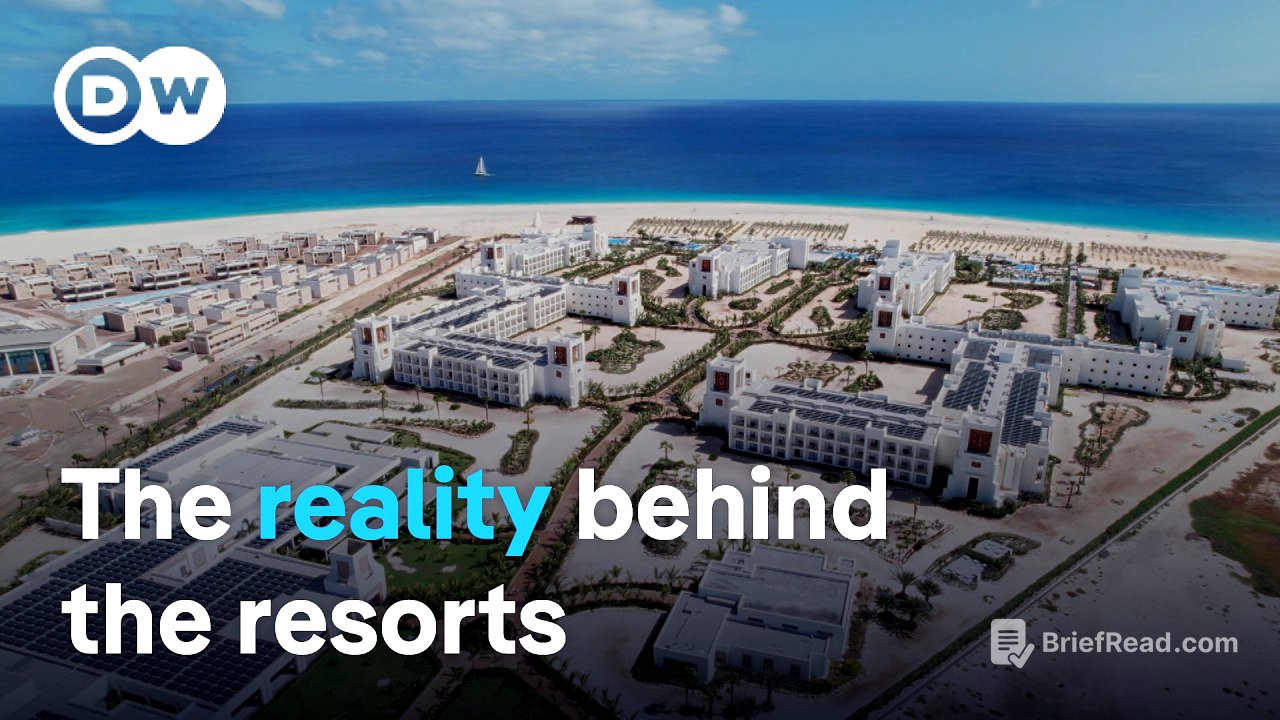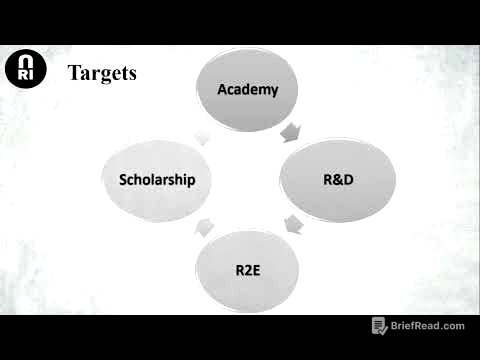TLDR;
This documentary explores the challenges faced by Cape Verde, an island nation grappling with the impacts of climate change and mass tourism. It highlights the scarcity of water, the environmental consequences of tourism, and the economic disparities within the country. The film also showcases the resilience of Cape Verdeans as they seek innovative solutions to these pressing issues.
- Water scarcity affects daily life and livelihoods.
- Tourism, while economically important, strains the environment.
- Local communities struggle to benefit from the tourism industry.
- Waste management and pollution pose significant threats to marine life.
Introduction to Cape Verde [0:02]
Cape Verde, an archipelago nation off the coast of Africa, gained independence from Portugal in 1975. Despite its name suggesting a "Green Cape," much of the country faces arid conditions and is on the frontline of climate change. Water scarcity is a significant issue, contrasting with the abundance enjoyed by tourists.
The Double-Edged Sword of Tourism [1:01]
Tourism accounts for 25% of Cape Verde's GDP, attracting around one million visitors annually. However, the benefits are not evenly distributed, with most revenue remaining within large hotels. Mass tourism also poses environmental risks, including the monetisation of natural resources like beach sand, which local women extract at great personal risk. The nation also struggles with plastic waste, endangering sea turtles.
Adapting to Survive: Fishing for Tourists [2:54]
In São Pedro, fishermen have adapted to declining fish stocks by offering turtle-watching tours to tourists. They have altered the turtles' natural behaviour by feeding them fish, disrupting their migration and diet. This adaptation is driven by industrial overfishing by European vessels, which has squeezed out local fishermen.
Water Scarcity in Montenegro [6:46]
The Poilão dam, once a source of pride, has dried up due to years of drought. In the village of Montenegro, families rely on a single fountain managed by Martha, who rations water based on availability. The fountain frequently breaks down, exacerbating the water shortage. Families like the Gonçalves struggle to secure enough water for cooking, drinking, and livestock, leading to significant hardship.
The Business of Water in Praia [11:11]
In Praia, the capital, water vendors like Domingos have emerged to meet the demand created by frequent water cuts. They purchase water from private wells, such as one owned by Georgette, who profits from this essential resource. This lucrative business highlights the inequalities in access to water.
Desalination: A Costly Solution [14:55]
Cape Verde has invested in desalination plants to combat water scarcity. However, these plants discharge highly saline brine into the sea, harming marine life. They also rely on diesel-powered power plants, contributing to CO2 emissions and making the desalinated water expensive, thus unaffordable for many.
Tourism's Impact on Sal Island [17:49]
Sal Island, a popular tourist destination, hosts numerous all-inclusive resorts like Riu. These resorts consume large quantities of water and import most of their food, providing minimal economic benefit to local communities. Despite charging tourists a tax, the industry poses a threat to the environment.
Shark Bay: A Tourist Attraction with Consequences [23:30]
Shark Bay has become a popular tourist attraction where visitors can see baby lemon sharks. Guides feed the sharks to attract them, potentially disrupting their natural behaviour. Project Biodiversity, an NGO, is studying the impact of tourism on these sharks, concerned about their ability to return to the sea.
The Illegal Sand Trade in Ribeira da Barca [27:03]
In Ribeira da Barca, women risk their lives extracting sand from the sea to sell to the construction industry. This illegal trade is driven by poverty and lack of alternative employment. The women face dangerous conditions and receive little compensation, while construction companies profit significantly from their labour.
The Environmental Crisis on Santa Luzia [35:22]
Santa Luzia, an uninhabited island, has become a dumping ground for waste carried by ocean currents. Biosfera, an environmental association, organises clean-ups to protect sea turtles that nest on the island. Volunteers collect tonnes of plastic and fishing nets, highlighting the global scale of the waste problem. Despite their efforts, the problem persists, threatening marine life.









